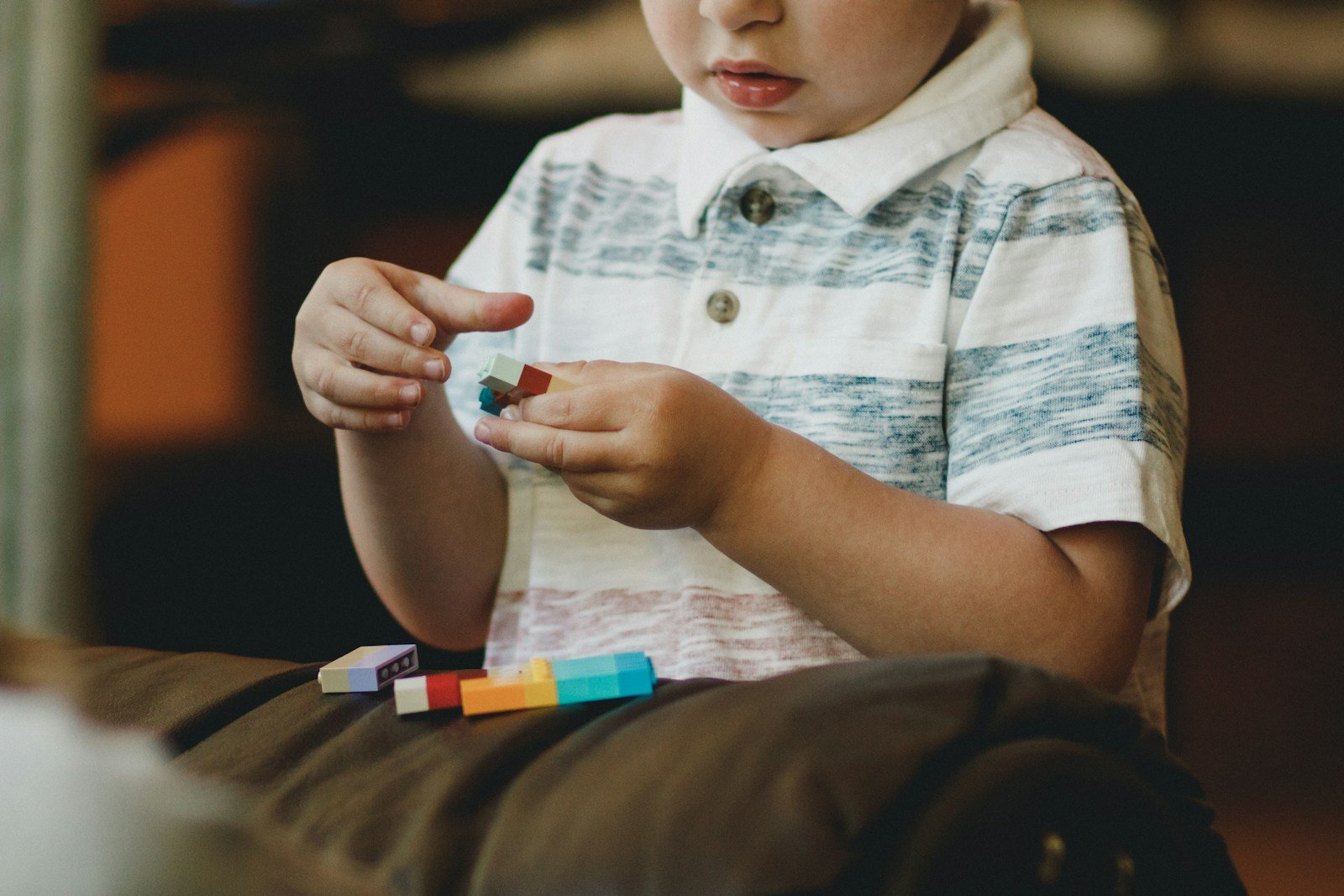Parenting a child with attention deficit hyperactivity disorder (ADHD) can be challenging.
It may seem like they always lose something, fidget or talk constantly, don’t listen to (or want to do) what you say, and can’t stay focused. Plus, they may take risks that may not be safe for them or others. As a parent, it’s not always easy to keep up with, much less stay one step ahead of, a kid like this.
Still, as hard as it may be at times to raise kids who have ADHD, you can take comfort in knowing that you’re not alone. ADHD is the third-most-common trusted Source of mental health disorders in children worldwide. In the United States alone, over 6 million kids trusted Source have ADHD.
Whether your kid has recently been diagnosed or has been living with the condition for a while now, there are many ADHD management strategies for parents that can make your life and your child’s life, more accessible and happier.
Get a professional ADHD evaluation and ADHD diagnosis
Whether you were the one to notice your child’s ADHD or not, seeking a professional evaluation is a key to understanding precisely what’s going on.
Sometimes, what looks like ADHD could be another condition. Only a professional — such as a neurologist, neuropsychologist, or mental health professional — can determine if your child’s symptoms are due to ADHD, another condition, or more than one condition.
In fact, when evaluating your child for ADHD, doctors must rule out 16 conditions or groups of states that have symptoms similar to ADHD. So, it’s essential to find a professional who is familiar with the latest research and theories about ADHD.
If you don’t know where to begin your search, consider:
searching online for local ADHD clinics or evaluators who specialize in ADHD
asking your child’s pediatrician or teacher for references
asking other parents who’ve had their child evaluated if they liked or disliked the evaluator and why
contacting national organizations to find local service providers
asking psychology professors at your local college for references
Spend time learning about your child’s unique ADHD challenges
Getting a diagnosis is only the beginning. ADHD doesn’t look the same in everyone, even if they have the same type of ADHD.
Before you can really help your kid with their ADHD, educate yourself about your child’s specific diagnosis, what their symptoms look like, and how ADHD can impact their life at home and school.
To help you get started, we’ve put together a comprehensive guide with ADHD resources, including book recommendations, ADHD organizations, podcasts, and more.
Understand co-occurring ADHD conditions
Children with ADHD are more likely to have other conditions as well.
These co-occurring conditions can make it harder to treat ADHD. They can also make it harder for parents and teachers to understand exactly why their child is acting a certain way.
If your child is diagnosed with a co-occurring disorder, you’ll also need to learn what that looks like with ADHD and how it may affect your child.
Some of the most common co-occurring disorders trusted Sources are:
Oppositional defiant disorder (ODD). People with ODD may repeatedly act out or lose their temper.
Conduct disorder (CD). People with CD have a pattern of aggression toward others.
Various learning disorders (LD). Many children with ADHD also experience learning disorders like dyslexia, dyscalculia, dysgraphia, and others.
Anxiety. Children with ADHD are at a higher risk of developing an anxiety disorder than children without ADHD.
Depression. Children with ADHD are at a higher risk of developing depression than children without ADHD.
Find the proper treatment for your child’s ADHD
For most children, the best ADHD treatment involves some combination of several things:
Behavioral therapy. Approximately half of all children trusted Source with ADHD also has behavior problems. One of the most common forms of this therapy is called cognitive behavioral therapy (CBT).
Psychotherapy. Talk therapy can give your child a safe place to talk about their feelings and the challenges they may face living with ADHD.
Social skills training. You or a therapist can help your child learn the skills they need to form and maintain good relationships with other kids.
ADHD medication. Medication for ADHD is more common than you think. About 75% of children trusted Source with ADHD received medicines as part of their treatment plan. The American Academy of Pediatrics recommends combining medication and therapy for the best results.
Secure an IEP or 504 for your child through their school
Your child will likely qualify for certain school services and accommodations because of their ADHD. These may include:
behavioral plans
extra time on tests
help with organization
positive reinforcement and feedback
modified instructions and assignments
movement breaks
To receive these services, the school will assess your child. If they believe your child qualifies for assistance, they will invite you to a meeting to discuss possible accommodations.
Depending on your child’s needs, they’ll receive an Individualized Education Program (IEP) or a 504 Plan.
An IEP plan is only given to children with ADHD if their condition, or additional conditions, impact their ability to learn. That means that the child requires special education services. It’s a detailed document that outlines your child’s diagnosis, needs, accommodations, recommended services, and anything relevant.
On the other hand, a 504 Plan is intended for children who can learn within a general education environment but with some extra help or modifications.
If your child’s school hasn’t contacted you about an assessment, don’t hesitate to ask them to perform one. Sometimes, it may be best to write your request to ensure the school district takes it more seriously.
Consider your (or your partner’s) own ADHD
ADHD parenting can be even more complicated when you may have difficulties with managing your ADHD. If your child has ADHD, there’s a 41% and 51%Trusted Source chance they inherited it from their biological mother or father, respectively.
In his book “Taking Charge of ADHD,” Russell Barkley explains that parenting a child with ADHD when your ADHD is undiagnosed or untreated may cause significant additional challenges.
You may fight with your child more, feel more stressed, and even increase your child’s risk for injury due to inattentiveness caused by your ADHD.
Here’s what Barkley suggests you can try:
Get your or your partner’s ADHD diagnosed and treated.
Take a behavioral parent training class.
Assign homework duties to the parent without ADHD.
Take turns to manage the children in the evening.
When possible, have the parent without the condition handle time-sensitive events like school projects, doctor’s appointments, etc.
If you’re a parent with ADHD:
Go to a quiet room if you’re feeling overwhelmed by your child.
Set timers for yourself to check in on your children and make sure they are safe and doing an appropriate activity.
Create weekly breaks for your child or children to recharge.
Praise your child when they do something well
Praising your child for a well-done job is always a great way to encourage them to do that good thing again. But researchers have found trusted Sources that praise may be even more meaningful for children with ADHD.
In fact, when you praise a child with ADHD, they’ll improve even more than their neurotypical peers because they’re more motivated by the possibility of receiving a reward.
This is called positive reinforcement. If you’re unsure exactly what that should look like, there are plenty of examples of positive reinforcement to get you started.
Create a rewards system at home
Is your child struggling to get dressed and out the door on time? Do they forget to brush their teeth or put their laundry in the hamper?
Positive reinforcement can also come from a rewards system to improve these behaviors.
One way to create this system is to select a few daily tasks you’d like your child to do and put them on a chart. Next, figure out their “currency.” What motivates them the most? This could be toys, a special dessert, or even money.
Each time your child performs their task, they earn points toward a reward or receive a small part of the reward.
Prepare your child for transitions
While stopping an activity your child enjoys, like playing a video game or watching a show, and switching to a task they should be doing instead may lead to resistance from any kid, it can be even harder for children with ADHD. These transitions can lead to negotiations, refusal, or outright tantrums.
To make it easier on everyone, try preparing your child for the transition in advance by doing one of the following:
Review the daily schedule with your child, so they know what will happen and when.
Remind your child or set a timer to go off 5 minutes before the transition, 1 minute before the change, and again at the time.
Mark the transition by doing something like checking off the activity they just finished.
Praise or reward them for a smooth transition.
Use technology to your advantage
Contrary to popular belief, technology can make parenting — including ADHD parenting — easier.
Smartphones, tablets, apps, or digital virtual assistants (like Alexa or Google Home) aren’t just for entertainment. With a bit of preparation, they can become excellent tools to help manage some of the symptoms of ADHD.
Managing time blindness
Suppose your child cannot track the passing of time, set timers, alarms, or reminders. This can help with everything from taking their medication to when they need to get ready to leave the house.
Making lists
If your child tends to forget what they need for soccer practice, even though it’s always the same five things, making a list can be helpful. But, because they’re more likely to lose a paper list, storing it on their phone or with a digital virtual assistant may be a better choice.
Managing anxiety or depression
There’s an app for just about everything these days, especially when managing anxiety or depression, common co-occurring conditions with ADHD. You may have to go through a few to find one that clicks with your child, but once they see their app, they can access it whenever they need it.
Practicing mindfulness
ResearchersTrusted Source has found that mindfulness interventions may help reduce core symptoms of ADHD. Apps and websites for meditation are excellent ways to begin a mindfulness practice.
While there are over 100 apps designed for ADHD, don’t feel constrained to just those options. Use the best technology for your child and their symptoms or difficulties.
Consider an ADHD coach
The daily discussions to get your child to do their homework or study may dent your relationship.
Most likely, your kid isn’t trying to be defiant. Instead, they may lack the executive functioning skills needed to get started, focus, follow directions, complete assignments, and more.
One of the best ADHD management strategies for parents of tweens and teens is an ADHD coach (also called an executive function coach). They can help build your kid’s motivation and self-esteem, which may also improve your parent-child relationship.
The coach takes over the task of getting your child to complete their work and teaches them the skills necessary to do it independently. They’ll also work with you to create systems and schedules so that you can positively support your child.
You can search for ADHD coaches online or ask your child’s pediatrician, school counselor, or members of local support groups for suggestions.
Take a behavioral parent training (BPT) class
Dealing with kids with ADHD requires specific skills that don’t come naturally to most parents. This doesn’t make you a bad parent; it just means that you’ll be an even better parent if you learn how to parent a child with ADHD.
In a 2019 study, parents who received behavioral parent training (BPT) felt less stress and experienced fewer problems with their children refusing to do chores, homework, and more.
BPT will help you create age-appropriate rules and positive reinforcement strategies that will work. It will also help you learn how to:
make an excellent daily routine
give specific directions
reduce choices and distractions
set achievable goals with your child
work with your child’s teacher on behavioral strategies
If an internet search for “behavioral parent training near me” doesn’t give you the results you need, consider asking your child’s pediatrician, therapist, school counselor, or members of local ADHD support groups for possible referrals.
Next steps
Learning how to parent a child with ADHD all begins with a proper diagnosis and taking the time to understand your child’s specific needs.
Finding the right ADHD management strategies may take some trial and error. But life will get easier once you learn how to deal with your kid’s ADHD and help your child manage their condition.
Sources:
- Fosco WD, et al. (2015). Evaluating cognitive and motivational accounts of more significant reinforcement effects among children with attention-deficit/hyperactivity disorder.
behavioralandbrainfunctions.biomedcentral.com/articles/10.1186/s12993-015-0065-9 - Other concerns and conditions with ADHD. (2021).
cdc.gov/ncbddd/adhd/conditions.html - Păsărelu C, et al. (2020). Attention-deficit/ hyperactivity disorder mobile apps: A systematic review.
sciencedirect.com/science/article/abs/pii/S138650561830323X - Polanczyk GV, et al. (2015). Annual research review: A meta-analysis of the worldwide prevalence of mental disorders in children and adolescents.
acamh.onlinelibrary.wiley.com/doi/full/10.1111/jcpp.12381 - Reynolds C, et al. (2013). Pearson Clinical. Attention-deficit/hyperactivity disorder (ADHD): 314.0X (F90.X).
images.pearsonclinical.com/images/assets/basc-3/basc3resources/DSM5_DiagnosticCriteria_ADHD.pdf - Starck M, et al. (2016). Occurrence of ADHD in parents of ADHD children in a clinical sample.
ncbi.nlm.nih.gov/pmc/articles/PMC4780663/ - Wolraich ML, et al. (2019). Clinical practice guideline for the diagnosis, evaluation, and treatment of attention-deficit/hyperactivity disorder in children and adolescents.
pediatrics.aappublications.org/content/144/4/e20192528 - ADHD in young children. (2016).
cdc.gov/vitalsigns/adhd/ - Andrews D, et al. (2018). ADHD in children and youth: Part 1—Etiology, diagnosis, and comorbidity.
academic.oup.com/pch/article/23/7/447/5142942 - Barkley R. (2020). Chapter 10. Just for parents. Taking charge of ADHD. New York, NY: Guilford Press.
- Ciesielski H. (2019). Behavioral parent training for ADHD reduces situational severity of child noncompliance and related parental stress.
journals.sagepub.com/doi/abs/10.1177/1087054719843181 - Data and statistics about ADHD. (2021).
cdc.gov/ncbddd/adhd/data.html





